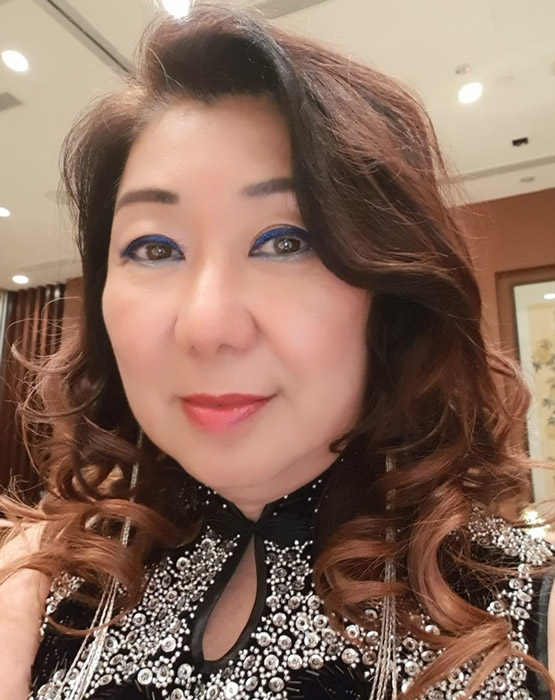Banking: yesterday’s gentleman’s club. Where Hollywood paints questionable pictures of an eighties heyday throbbing with bullish machismo (from both male and female characters) and Leonardo di Caprio throwing humans at darts boards.
On Singapore’s Boat Quay stands the Penny Black, favoured drinking spot of the finance’s original bad boy and British rogue trader, Nick Leeson. It’s a mock Victorian monument to boyish roguishness: Oliver Twist, the collapse of Barings Bank. That sort of thing.
In today’s race to change that boys’ club image of the banking sector, Singapore is falling behind. Even though Singaporean women average 33% of senior management teams for businesses generally, the country has not managed to achieve the same within its banking sector. Recent Bloomberg data revealed that Malaysia leads in the representation of women in top positions (33%) at banks in Southeast Asia, while Singapore lags behind in fourth at 12%.
But digitalisation may give the industry a further chance for growth and change.
FinTech is finances’ fasting growing sector, and last autumn the Singapore FinTech Festival set a record as one of the largest of its kind to date – welcoming 569 speakers, close to 1,000 exhibitors and more than 60,000 participants from 140 countries.
Things look promising for Singapore’s women in this emerging field, with a 2019 study by ValueChampion, a Singapore-based personal finance and consumer research brand, placing the city-state second after Australia as the ‘Best countries for women in FinTech in Asia-Pacific’.
However, while women currently make up 38% of the FinTech workforce, they hold just 19% of the C-suite. Public scrutiny from global researchers like Deloitte has called the sector out early and pushed it to aim towards greater diversity in its formative stages.
While it certainly has the potential to be in its emerging iterations, is the future of finance female friendly in Singapore? Here, two former business leaders from the city-state look back at their finance heyday, reflect on what’s changed, and what the future of finance might look like for its female leaders.
When it comes to wealth management, Veronica Pang is rich in experience. Cutting her teeth in sophisticated client-facing derivative marketing at JP Morgan, she has risen through the ranks, and worked across senior wealth management portfolios as an Executive Director at Goldman Sachs, Morgan Stanley and UBS Singapore.
Now she runs her own consultancy firm on a freelance basis working with a specialty training company that provides training sessions, facilitation workshops and coaching to empower wealth managers and other financial service professionals. For her, the industry has been an exciting place to spend the last three decades, because “everything is constantly and consistently changing” … including gender expectations.

“I do think that things are changing” she explains over Korean BBQ and soju in Telok Ayer.
“You have to remember that Singapore is, at heart, a traditional and conservative society. So, yes there used to be certain expectations over what sort of woman you could be. What you could say, how you could act. And it was never something outright. It’s subtler than that, the way that you are perceived. If, for, example, you’re a woman who likes a drink. You were much more likely to be judged socially than your male colleagues” She glances around the crowded bar. “Things are very different now”.
Part of the reason, she believes, is that the internationality of the financial services. Having worked in the local headquarters at some of the world’s largest global banks, Pang can testify that flagship culture spreads.
“An American bank will be somewhat American in terms of values and culture. A German or Swiss bank will be the same. It’s not surprising. And one of the interesting things about Singapore – and the industry – being truly multicultural, is that we’re quite exposed to global trends when it comes to things like diversity”.
This is a small nation thriving to survive in the world and as such has encouraged a high proportion of women, particularly working mothers, in the workforce
Over the years, she has noticed that increasingly, women were playing more prominent client-facing and management roles in the industry at senior levels. Similarly, on the client side, there are more women managing their family funds and wealth.
“This is a small nation thriving to survive in the world and as such has encouraged a high proportion of women, particularly working mothers, in the workforce.”
Through activities including role play and simulation, her sessions focus on the advisory soft skills of communication and relationship building. Does she feel that the fact that these are widely considered more “feminine” traits help her to get business and provide better coaching and mentorship? Perhaps. But more pertinently than the advantage of gender to Pang, is the accumulation of experience.
“I’ve thoroughly enjoyed what I’ve been doing over my career in banking”, she smiles “And even more so, what I do now is a way to give back to the industry. I’ve learnt and grown so much from the ups and downs of the various financial cycles which are now extremely valuable in the coaching sessions… Not only the good, but especially the bad experiences!”
The Singapore government has made diversity a priority, with the Council for Board Diversity setting targets of hitting 20%, or about female 171 directorships, by end of 2020. But for Anthea Ong, Nominated Member of Parliament and social advocate, the issue of gender diversity in financial services is one much closer to home.
A former finance sector professional, Ong initially found the sector’s rigid, male-dominated culture frustrating.

“I remember as a young corporate banker, I was made to believe that to succeed in a ‘man’s world’, you have to ‘act like one of the boys’,” she tells the Globe.
“Whether that’s in the way you dress, or proving that you can ‘drink them under the table’ – and I certainly used to wear suits with shoulder pads and drank like I was cooler than James Bond! A female colleague thought she needed to keep up with the drinks to be ‘accepted’ but got so terribly sick – I seem to recall a junior male leader saying something like ‘it’s a pity she couldn’t drink’.
She says that while Singapore’s finance sector certainly had a masculine culture surrounding it, it wasn’t until she began working abroad in different regions of the world that she became aware of just how male-centric the sector could be.
“When I was Managing Director of New York Institute of Finance for Asia Pacific and Middle East, I was introduced to the true extent of gendered roles – I would turn up for meetings in the Middle East with a financial services authority and wonder why male counterparts avoided eye contact with me but would instead be looking at my junior male colleague. Other than my Western suit, it was possible that they could not fathom the prospect of a female MD.”
In some ways, I probably broke the glass ceiling but I now know I wasn’t truly happy in those early days because I wasn’t necessarily comfortable in my own skin. It took a colossal collapse to let me see the woman and human that I am
Ong steamed to success in the male dominated industries of both finance and tech. But for her, smashing the glass ceiling didn’t bring her the happiness she hoped.
“I was asked often if I felt there was a glass ceiling for women in the financial services sector, or business sector in general. I never felt curtailed or limited in my potential because of my gender since my rise was meteoric, being a Managing Director of an international firm at the young age of 25,” she said.
“In some ways, I probably broke the glass ceiling but I now know I wasn’t truly happy in those early days because I wasn’t necessarily comfortable in my own skin. It took a colossal collapse to let me see the woman and human that I am.”
This “colossal collapse” cumulated in 2008 when a failed business and marriage left her financially – and emotionally – floored. Looking back, she reflects on the unnoticed effect of unconscious gender bias on mental health.
“The unconscious gender bias is both external and internal, and has a direct impact on our mental wellbeing. By the time I got to my last corporate role as a Regional Managing Director for a UK-listed consultancy for banks in the region, I was on a path of advocating for gender diversity and equality – especially in the business and political spheres – and would often share this in conversations with my clients who are senior male bank executives.”
For Ong, while progress has been made in making finance more inclusive, there remains a long way to go in terms of realising gender diversity in the sector – starting with resisting gender roles and the masculine culture that still pervade the industry today.
“As much as it is encouraging to see the progress, it is still exasperating that so much that can be done hasn’t been done for us to see more women on boards of public listed companies in Singapore,” she said.
“This is not a battle between the sexes, it’s a battle against millennia-old social conditioning that needs all hands on deck to reframe – including women not perpetuating, like I did, the social norms that reinforce the gender inequality. I used to joke that the day we achieve true gender equality may be when we see child-minding facilities in every bank around the world!”
As traditional gender roles become more fluid – and the trend towards flexible and remote working grows – such jokes may lose their meaning in the workforce of the future.
It might take a little longer to reach gender parity itself. But as digitalisation becomes increasingly integral to business, there will be new operations, with new roles, free from the stigma of traditional gender stereotypes.
The question is what this new landscape will look like, as well as how the next generation of Singaporean women leaders shape the future of finance so that gender parity is not a victory, but a norm. As women smash the glass ceiling, the view from the top is changing, fast.


